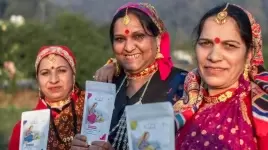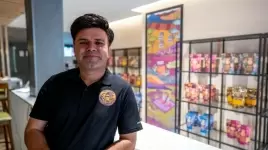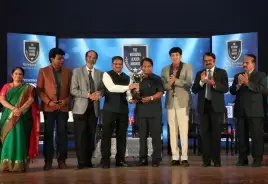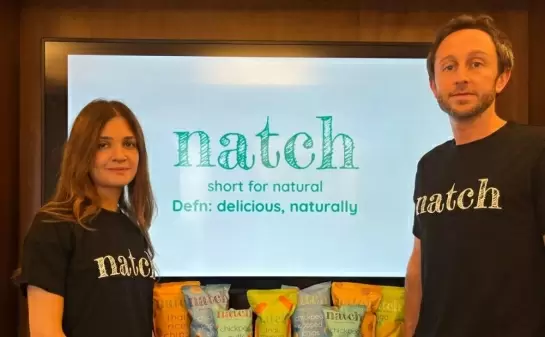Tribal women in forefront of the war against drought and water scarcity

26-April-2012
Vol 3 | Issue 17
It was ironical that Purulia district often found itself on the West Bengal government's 'drought-hit' list when the average rainfall here is 1100mm-1500mm.
The failure to conserve water as well as poor agricultural practices meant that despite back-breaking labour in the fields, farmers could only achieve six months' food sufficiency.
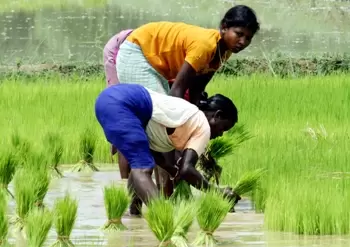 |
|
By using traditional, low-cost water systems like 'hapas'
(tanks) and earthen dams, the women of Purulia have turned the once-parched fields into multi-crop lands. (Photo: Amzad KaziWFS) |
Today, however, all that is changing thanks to a water management revolution led by ordinary village women, a majority of them tribals.
"The magic has been worked through our Self Help Group's (SHGs) water management programme," says Sadmoni Hembram, 39, of Tilaboni village, who proudly informs that she has a multi-crop land that yields two vegetable and one paddy crop in a year these days.
In an area where development has been stunted due to a weak government machinery and increasing Maoist influence, SHGs like Sadmoni's 'Petre Madwa' have spearheaded developmental initiatives like the Integrated Natural Resource Management (INRM) under the government's Swarna Jayanti Gram Swarojgar Yojna (SGSY). Of course, this has been achieved with guidance from Pradan, an NGO working on creating sustainable livelihood in the region.
"Purulia that falls in the Agro-Economical Zone 7 gets adequate rainfall, yet most of the water just flows away, particularly in the hilly areas.
“Therefore, we train the SHG women to conserve water, increase water harvesting and water table levels, check soil erosion and offer a combination of crops best suited to the category of land and available water resources to improve livelihood," explains Kuntalika Kumbhakar, Integrator (state unit), Pradan.
As per Sadmoni, in order to improve access to water for irrigation in her village, they have "made 'hapas', or small water tanks, where rain water is collected."
These 'hapas' have a technical design, wherein the lowest point of the field is excavated in steps and the rain water flows into the tank. "The size of these tanks varies from 30ftx30ft to 100ftx100ft depending on the area that needs to be irrigated," she says.
Once the water is collected, the next step is to ensure that a minimum amount is used to irrigate the maximum area.
Better water management has led to a remodelling of local agricultural practices with farmers now cultivating short-term crops. The land in Purulia falls into four categories and the tribal population categorises them as: 'byde' or upland, 'kanali', which refers to surface-level medium upland as well as medium lowland, and 'bohal' or low-lying land.
Says Sadmoni, "The land holdings among the families of women in the 184 SHGs in Burrabazar block fall under the medium upland category. Today, we first plant a pre-monsoon cash crop like vegetables or creepers such as cucumber or gourds, which use the north-western showers. Later, a short-term paddy crop that is sufficient for our use is sown. This is followed by another vegetable cash crop.
“There is sufficient water because along with the monsoons, we use the 'hapas' water. In extreme dry seasons, we plant mustard for a short term. Almost all farmers now have at least double or three crops."
Like Sadmoni, Sarathi Kumar Bala, 30, is a happy woman today. In addition to water conservation, she, and other tribal women of the Narayani Mahila Samity in Berada village, have understood the importance of safe drinking water and hygiene.
Here, the Water for All intervention, which focuses on safe drinking water and sanitation and on bringing about a change in the attitude of the villager, has made the difference.
Effecting change, Sarathi's group has been conducting house visits to convince villagers to keep their surroundings clean, wash hands regularly and not to defecate in the open. "We also make them aware of the Rs 3,200 (US$1=Rs 51) government subsidy to build latrines if they contribute Rs 300 themselves," she says.
As Sarathi's village group successfully put into practice the Water For All strategy, their tribal sisters in Mohuldi hamlet, which falls under Jhalda I Block, were not far behind.
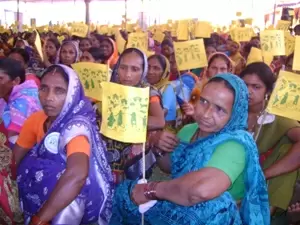 |
|
Purulia's SHG movement is a development initiative without a political umbrella and it has given recognition and dignity to women (Photo: Jayanta PalWFS)
|
In an area characterised by water scarcity, the Radha Rani SHG, led by Balika Mahato, has pioneered an initiative to provide piped drinking water.
"We not only constructed several water harvesting structures for irrigation, but have set up a pipe distribution channel across the village to ensure that water from deep tube wells used for drinking is not wasted," says Balika, 38.
Even in the hilly terrain of Bagmundi and Ayodhya blocks, tribal women from 65 SHGs now know how to hold on to the rain water that previously used to simply flow away.
They have devised low-cost methods like building earthen dams and using the gravitational flow mechanism to carry the water to the site through channels.
"The cost is minimal and the women are reaping the benefits in the form of increased agricultural yield," points out Kuntalika.
In Gokurnagar village, for instance, 8-10 bighas of non-fertile land today is yielding paddy, potato and mustard crops through the year because of the efforts of the Bidhuchandan Mahila Samity, a group of 14 tribal women.
"We first built mud banks around the land to prevent soil erosion and allowed the rain water to stagnate for a year. Then we spread cow dung fertiliser to make the soil fertile and dug several 'hapas'.
“After the fertiliser dried up, we did a soil test and then planted our first paddy crop. For the last two years, we are also harvesting potato and mustard on the same land," beams Mangali Mandi, 28, the treasurer of the group.
Purulia's SHG movement is a development initiative without a political umbrella and it has given recognition and dignity to women, who earlier had no significance, presence or voice. - Women's Feature Service



